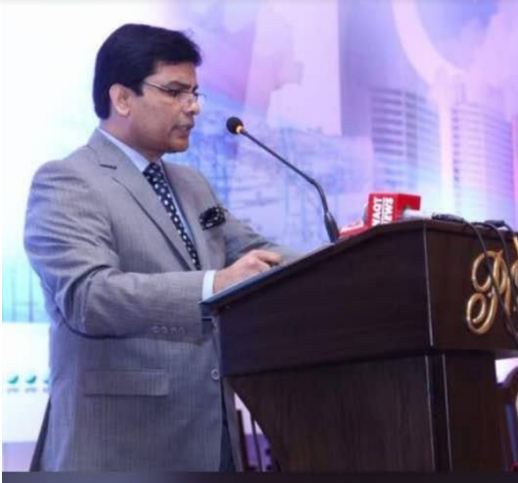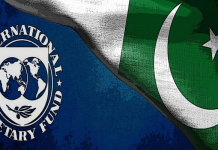ISLAMABAD: /DNA/ – The All Pakistan Business Forum (APBF) has urged the government to raise exports volume further up with a keen focus on value addition for a sustainable economic trajectory as the exports from Pakistan during Sept 2024 amounted to Rs790.12 billion against Rs769.4 billion in Aug 2024, showing a nominal increase of 2.69 percent.
APBF president Syed Maaz Mahmood observed that the foreign direct investment should only be encouraged that ensures net surplus in foreign exchange by curtailing imports and increasing exports. He said that IMF should be a stop-gap arrangement to reduce the magnitude of this bailout, which may have forced excessive devaluation, steep monetary tightening, cut in development and defence expenditures.
The APBF Chairman Ibrahim Qureshi observed that the existing tax system is heavily skewed toward indirect taxation whereas a direct tax can certainly improve tax collection in some instances, he added.
He said the sustainable solution to Pakistan’s problems lies in the structural reforms.
Quoting the exports data, the APBF President said that Pakistan’s revised trade deficit for September was $1.83 billion, compared to $1.772bn the previous month, reflecting a 3.39% rise.
He said that the trade deficit has widened by 20.69% compared to September 2023’s deficit of $1.52bn. Exports increased by 2.82% to $2.84bn compared to $2.76bn in August 2024. Likewise, imports in September 2024 also rose 3.61% to $4.67bn compared to $4.51bn in the previous month.
According to the provisional figures compiled by PBS, in Pakistani rupees terms, exports from Pakistan during September, 2024 amounted to Rs790.12bn as against Rs769.4bn in August, 2024 and Rs735.69bn during September, 2023 showing an increase of 2.69% over August, 2024 and of 7.40% over September, 2023.
Main commodities of exports during September, 2024 were Knitwear (Rs124.743bn), Readymade garments (Rs94.151bn), Bed wear (Rs80.751bn), Cotton Cloth (Rs55.93bn), Rice others (Rs51.93bn), Towels (Rs25.2bn), Oil seeds, Nuts & Kernals (Rs24.92bn), Madeup articles (excl towels & bedwear) (Rs19.94bn), Basmati rice (Rs19.63bn) and Cotton yarn (Rs14.47bn).
Imports in rupee terms in September 2024 amounted to Rs1.3 trillion (provisional) as against Rs1.26tr in August, 2024 and Rs1.176tr during September, 2023 showing an increase of 3.50% over August, 2024 and of 10.54% over September, 2023.
Main commodities of imports during September, 2024 were Petroleum crude (Rs143bn), Petroleum crude (Rs133.04bn), Natural gas liquified (Rs87bn), Electrical machinery & apparatus (Rs75.91bn), Palm oil (Rs69.9bn), Iron & steel (Rs51.42bn), Plastic materials (Rs50.16bn), Fertilizer manufactured (Rs29.72bn), Mobile phones (Rs28.56bn) and Medicinal products (Rs27.19bn).
As imports fell more than the decline in exports, the trade balance of goods and services improved.
Syed Maaz Mahmood said that exports are constrained by domestic production issues related to the slowdown of demand in the main export markets and high domestic production costs. Imports are currently constrained by sluggish domestic demand and administrative measures to protect the official foreign reserves level.
Since no immediate reversal of these developments is envisaged, the trade balance may further stabilize or further improve somewhat in the upcoming months.
He observed that the low textile and clothing exports is gaining momentum over the long time owing to multiple factors including high energy costs, stuck-up refunds and a slump in global demands despite the massive depreciation of the rupee. He believes that one of the main reasons behind low exports was the exchange rate instability.
Maaz Mahmood lamented that the present situation shows the government would find it difficult to achieve the industrial growth and high export target, leading to pressure on foreign exchange reserves of the country. He asked the government to address the underlying structural vulnerabilities through smooth energy supply at competitive rates, as country’s overall export proceeds continued to shrink.
He said that the government has increased the gas and electricity tariffs and, at the same time, also the subsidy has been phased out, which will further increase the cost of production for SMEs.

















